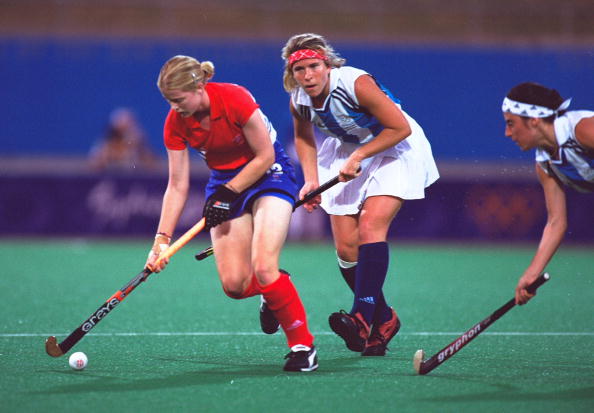Over the next few weeks the best young hockey players on the planet will battle it out at the Junior World Cup. This is the top competition in under-21 hockey, but many of these players will hope it is another step towards representing their countries at senior level.
This year the women’s competition returns to Santiago, Chile. My Junior World Cup was at the same venue in 2005. Although we had a poor campaign (finishing ninth), over half of our squad progressed to senior international hockey, with six team members later winning Olympic medals in London and Rio. There were some now familiar names lining up for the opposition too: Maartje Paumen, Naomi Van As, Madonna Blyth and Julia Muller to name a few.
Some players burst onto the senior international scene more suddenly. Alex Danson was first capped at 15, Helen Richardson-Walsh competed at Sydney 2000 aged 17 while Kate Richardson-Walsh hit the stage aged 19. Both the New Zealand and Netherlands men included 18-year-olds in their Rio lineups. Perhaps most impressive of all is current Dutch international Lidewij Welten – a triple Olympic medalist (two golds, one silver) and World Player of the Year all by the age of 26!
Selecting a talented youngster at any level can turn out to be a brave, risky or inspired choice by a coach. While not every promising junior will end up playing at a World Cup or Olympic Games, the principles behind deciding when to promote junior talent remain the same.

Coaches clearly have a key role in assessing a young player’s technical, tactical and physical readiness for senior hockey. The most exciting junior talent is proficient in all three areas, but decision-making is perhaps the most important aspect – if a player makes good choices, they tend to stay out of contact, giving them more time and space to execute skills. This is what allows the best youngsters to thrive at senior level from the outset.
A junior’s current level and potential development must be considered in the context of the team they are joining. Short-term competitive success and long-term potential don’t always combine smoothly, so careful consideration of the impact on the wider team and the individual is important. A balance of youth and experience within a team is often a recipe for success.
Brett Garrard – our ladies first team coach at Surbiton – is passionate about youth development but also expects more experienced players to mentor and support promising colts. For me, this translates as trying to never get beaten in a one-on-one by a junior at training, but also knowing the right time and manner to talk to young players to help them learn. Brett uses selected training sessions or pre-season as opportunities for young players to get a taste of first-team hockey and identify who may be ready for matchplay.
However, a balance must be struck between thinking of the future and playing in the now. Even for very talented juniors, playing with their peers may still be important. Being the strongest player in a junior group can foster enjoyment, confidence and leadership skills. The challenge this creates is managing how much hockey juniors are actually playing – school, club and representative hockey must all be juggled with academic work, other sports and a social life.
In general, I believe promising young players should be given a chance to step up. I’ve always felt receiving my first senior England cap aged 17 had a positive effect on my confidence, resilience and development as a player. Skilful coaches can find a balance between allowing a promising junior to play freely and overloading them with information to facilitate learning. Making mistakes – even at the cost of immediate performance – can be a valuable process.
For this reason, it can also be powerful to put juniors into pressure situations. This might mean giving a junior a chance in a big game or tournament, or playing a defender in their normal position rather than just putting them on up front because it is seen as less of a risk. Giving youngsters a chance to learn in the toughest situations must be managed carefully, but if a player is good enough, they’ll handle it – and either way, they will learn from it.
Beckie Middleton is a former England & GB hockey player, Commonwealth and multiple-European medallist, currently playing for Surbiton. She has an MA in Creative Writing and writes a regular sports blog www.thatinkingfeeling.wordpress.com / @inkingfeeling





